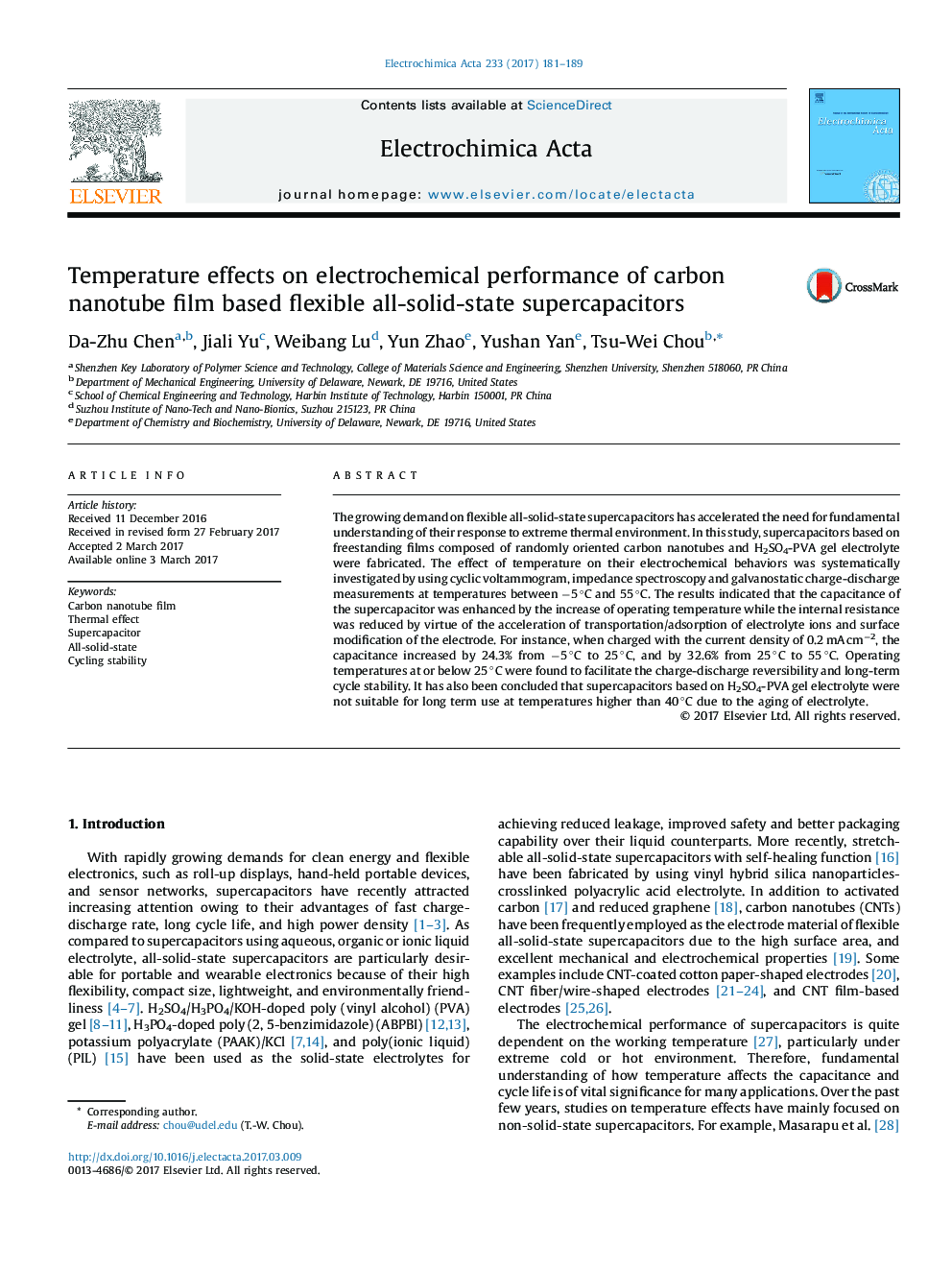| کد مقاله | کد نشریه | سال انتشار | مقاله انگلیسی | نسخه تمام متن |
|---|---|---|---|---|
| 6471461 | 1424124 | 2017 | 9 صفحه PDF | دانلود رایگان |
- The carbon nanotube film based all-solid-state supercapacitor was fabricated.
- The capacitance of the supercapacitor was enhanced by elevating the temperature.
- The resistance dropped 49.6% as the temperature increased from â5 °C to 55 °C.
- The supercapacitor kept a high level of capacitance when cooled down from 55 °C.
- The supercapacitor was electrochemically stable at no higher than 40 °C.
The growing demand on flexible all-solid-state supercapacitors has accelerated the need for fundamental understanding of their response to extreme thermal environment. In this study, supercapacitors based on freestanding films composed of randomly oriented carbon nanotubes and H2SO4-PVA gel electrolyte were fabricated. The effect of temperature on their electrochemical behaviors was systematically investigated by using cyclic voltammogram, impedance spectroscopy and galvanostatic charge-discharge measurements at temperatures between â5 °C and 55 °C. The results indicated that the capacitance of the supercapacitor was enhanced by the increase of operating temperature while the internal resistance was reduced by virtue of the acceleration of transportation/adsorption of electrolyte ions and surface modification of the electrode. For instance, when charged with the current density of 0.2 mA cmâ2, the capacitance increased by 24.3% from â5 °C to 25 °C, and by 32.6% from 25 °C to 55 °C. Operating temperatures at or below 25 °C were found to facilitate the charge-discharge reversibility and long-term cycle stability. It has also been concluded that supercapacitors based on H2SO4-PVA gel electrolyte were not suitable for long term use at temperatures higher than 40 °C due to the aging of electrolyte.
248
Journal: Electrochimica Acta - Volume 233, 10 April 2017, Pages 181-189
